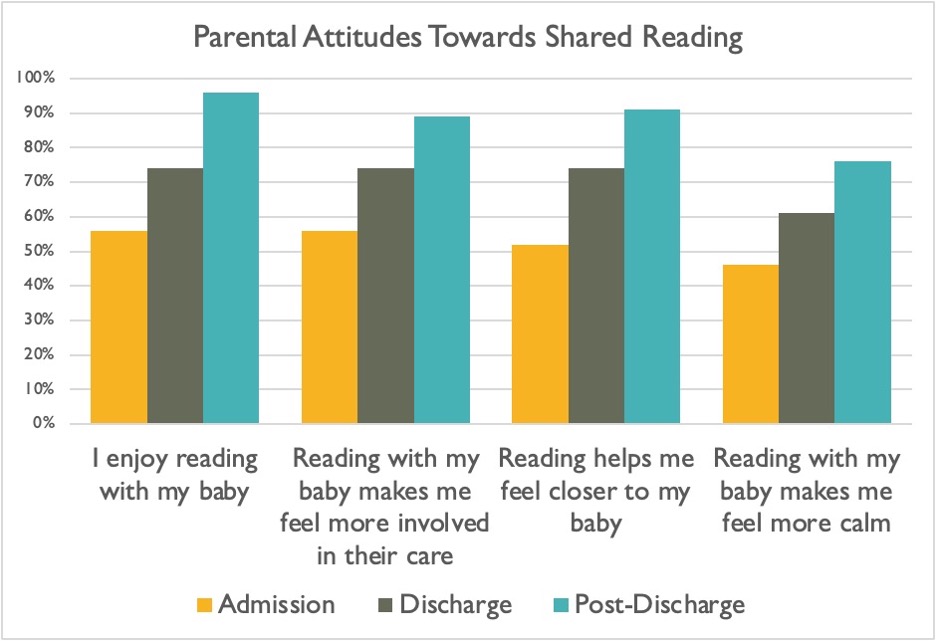Neonatal General
Neonatal General 3: Ethics, Parents Take the Lead
289 - Parental Attitudes Towards Shared Reading During Neonatal Intensive Care Unit Admission
Friday, April 28, 2023
5:15 PM - 7:15 PM ET
Poster Number: 289
Publication Number: 289.132
Publication Number: 289.132
Kaitlyn Judkins, University of Utah School of Medicine, Salt Lake City, UT, United States; Catherine Caruso, Oregon Health & Science University School of Medicine, Portland, OR, United States; Rachel A. Lockard, Oregon Health & Science University School of Medicine, Portland, OR, United States; Veronica I. Carrasco, Oregon Health & Science University School of Medicine, Portland, OR, United States; Ellen Stevenson, Oregon Health & Science University School of Medicine, Portland, OR, United States; Katharine E. Zuckerman, Doernbecher Children's Hospital at Oregon Health & Science University, Portland, OR, United States

Kaitlyn Judkins, MD (she/her/hers)
Neonatal-Perinatal Medicine Fellow
University of Utah School of Medicine
Salt Lake City, Utah, United States
Presenting Author(s)
Background: Shared reading beginning in the Neonatal Intensive Care Unit (NICU) has potential developmental benefits, especially for premature infants. However, little is known about parental practices and attitudes toward shared reading in the NICU and potential barriers and facilitators to implementation of shared reading programs in this at-risk patient population.
Objective: To assess parental habits and attitudes toward shared reading with their infants who are admitted to the NICU.
Design/Methods: We distributed self-administered electronic surveys in English or Spanish via REDCap to 50 parents of infants sequentially admitted to the NICU with estimated lengths of stay greater than two weeks, no concern for uncertain viability, and no significant social complexity. Surveys assessing shared reading perceptions, goals, and habits were distributed at admission, discharge, and one month post-discharge from the NICU. Parent and infant demographic information were obtained via survey and electronic medical record.
Results: Our sample included 50 parents of infants with mean gestational age at admit of 33 4/7 weeks (range 27 0/7-40 1/7 weeks). Upon admission, more than half of parents (56%) reported shared reading as one of three activities they were most looking forward to with their infant, second only to feeding (88%). Upon admission, 100% of parents planned to read to their infant at discharge and 72% believed babies are ready to be read to at birth, even if they are premature. At discharge however, 43% hadn’t yet read to their infant and only 26% reported reading with their infant at least 3 times a week. Half reported having no books at their baby’s bedside in the NICU and almost half (46%) reported having 10 or fewer children’s books at home. On post-discharge survey, nine percent of parents still had not read with their baby and 58% reported shared reading at least 3 times a week. Parental attitudes towards shared reading, such as feeling involved in care and increased feelings of calm, are reported in Graph I. Positive attitudes towards shared reading increased from admission to post-discharge.
Conclusion(s): Reading provides an opportunity for parents to connect with their infants in the NICU, with evidence that this connection extends and even increases post-discharge. However, NICU reading rates are less than parental goals at admission, possibly related to barriers such as lack of books at bedside and at home. Planning and implementation of shared reading programs in the NICU can build on these positive parental beliefs and support parents in their goals while addressing barriers.

